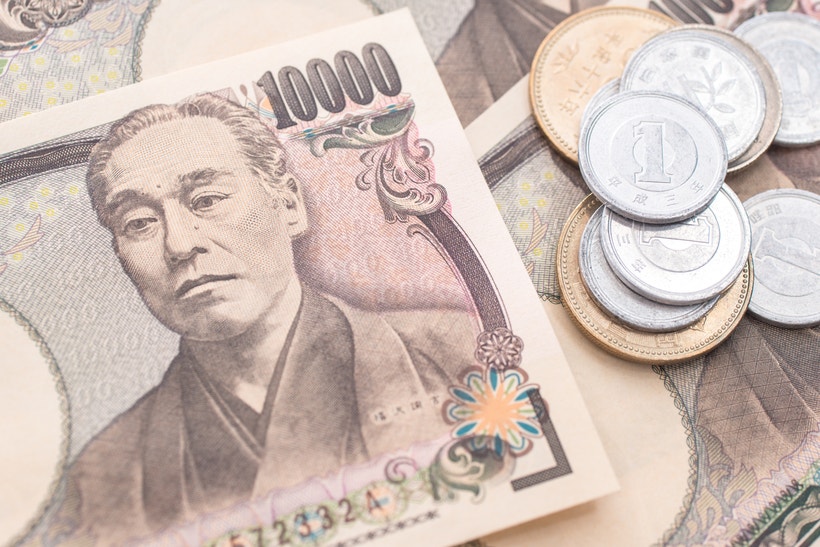Can Japan save the yen currency?
Explore whether Japan can reverse the yen's decline amid historic lows. Insights into recent interventions by Japan's Ministry of Finance and the central bank's policies show efforts to stabilize and strengthen the yen.

Key points
- Sporadic price action in USD/JPY last week suggests Japan's Ministry of Finance directly intervened in currency markets
- The Japanese yen is historically weak, with USD/JPY up 50% in recent years
- A main driver of yen weakness since the pandemic has been low GDP growth combined with ultra-loose monetary policy
- Japanese stocks have been strong in the low-interest-rate environment
- It is unlikely the yen can recover in the long-term with MoF intervention alone
Japan’s Ministry of Finance intervenes on yen currency
Last week, USD/JPY experienced a sharp drop of roughly 300 pips, initially falling by about 100 pips following a US CPI report, and then another 200 pips subsequently, indicating a possible intervention by Japan's Ministry of Finance. This move comes as the yen has faced extended periods of weakness against major currencies, bottoming out at historical lows before this sudden rally.
How bad is the Japanese yen?
The yen's devaluation has been stark, with USD/JPY climbing around 50% since 2020, escalating from the 100-110 range to well over 150. This depreciation has been underscored by a recent intervention, aiming to bolster the currency from its lowest stand against the dollar, pound, and euro for more than a decade.
Why is Japanese yen so weak?
Persistent dovish and expansionary monetary policies by the Bank of Japan, alongside minimal to negative interest rates, have significantly weakened the yen. Interestingly, the Bank of Japan recently raised its base rate from negative to zero, a move still conservative compared to global counterparts which are still in the 4-5% range, continuing the yen's vulnerability in forex markets.
Inconsistent Japanese economy
Japan's GDP growth has been sporadic post-1980s, rarely showing consistent positive trajectories. This inconsistent economic performance has invariably played into the yen's long-term weakness, making the currency's future uncertain without structural economic shifts.
Volatile currencies can hurt foreign investment
The instability in the yen's valuation has been exacerbated by Japan’s aggressive quantitative easing measures, aiming to stimulate domestic growth amidst faltering global confidence in the yen. As a result, the Japanese stock market is breaking through new highs. This precarious balance poses a risk to sustained foreign investment as seen in currency markets.
Will Japanese yen continue to devalue?
As Japan's Ministry of Finance steps in to shore up the yen, recent history suggests interventions may offer short-term relief but might not herald a long-term turnaround. The focus now turns to whether broader economic reforms or further central bank actions will ultimately support the yen’s recovery. These pillars will be integral in determining whether USD/JPY reverts to historical means or if these price extremes are merely a steppingstone to a new trading range.
How to trade Japanese yen
- Open an account to get started, or practice on a demo account
- Choose your forex trading platform
- Open, monitor, and close positions on JPY pairs
Trading forex requires an account with a forex provider like tastyfx. Many traders also watch major forex pairs like EUR/USD and AUD/USD for potential opportunities based on economic events such as inflation releases or interest rate decisions. Economic events can produce more volatility for forex pairs, which can mean greater potential profits and losses as risks can increase at these times.
You can help develop your forex trading strategies using resources like tastyfx’s YouTube channel. Our curated playlists can help you stay up to date on current markets and understanding key terms. Once your strategy is developed, you can follow the above steps to opening an account and getting started trading forex.
Your profit or loss is calculated according to your full position size. Leverage will magnify both your profits and losses. It’s important to manage your risks carefully as losses can exceed your deposit. Ensure you understand the risks and benefits associated with trading leveraged products before you start trading with them. Trade using money you’re comfortable losing.
